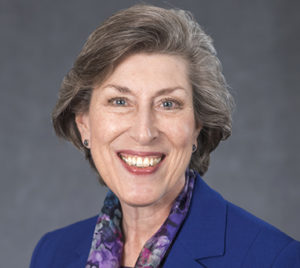
Readings:
Reading 1: Isaiah 22:19-23
Responsorial Psalm: Psalm 138:1-3, 6, 8
Reading 2: Romans 11:33-36
Gospel: Matthew 16:13-20
Who Do You Say You Are?
The question Jesus poses in today’s gospel is not a pop quiz for the disciples. Since it comes half-way through Matthew’s Gospel, at a critical turning point, we might be tempted to think Jesus is giving a kind of midterm exam to see how well the disciples are understanding him and to test whether they have what it takes to go the rest of the journey with him. But the scene may also reflect Jesus’s own development in understanding his identity and mission. Taking Jesus’s humanity seriously, and recalling Luke’s assertion that Jesus increased in wisdom and in years, and in divine and human favor (Luke 2:52), we might say that in today’s gospel and next Sunday’s, we see a glimpse of Jesus’s deepening understanding of what it meant to be “the Christ, the Son of the living God” (v. 16).
In contrast to modern Western cultures in which individuals expend energy trying to find their own unique identity as persons distinct from other persons, in Jesus’s culture a person understood her- or himself only in relationship to the groups in which she or he was embedded: family, clan, nation, and religion. Paul, for example, identifies himself as a member of the people of Israel, of the tribe of Benjamin, a Hebrew born of Hebrews, as to the law, a Pharisee (Phil 3:5). Earlier in the gospel, the people of Jesus’s hometown identify him as the carpenter’s son, whose mother is Mary, and whose brothers are James, Joseph, Simon, Judas, and who also has sisters (Matt 13:55-56). In addition, in such a culture, the perceptions of others also help to shape a person’s identity.
In today’s gospel, Jesus seeks out others’ perceptions as he solidifies his understanding of himself. The disciples first report that people align Jesus with revered prophetic figures: John the Baptist, Elijah, Jeremiah. While there are many parallels between Jesus and these prophets, Matthew clearly distinguishes Jesus from them. He is the more powerful one coming after John (Matt 3:11). And it is John who embodies the returned Elijah (Matt 11:14; 17:12).
As Jesus presses the disciples for their own responses, Peter rightly declares, “You are the Messiah” (christos). This is a term used in the Old Testament for one who is set apart by God for particular service, like kings (Pss 2:2, 89:20); priests (Lev 4:3, 5), and prophets (1 Kgs 19:16). That Jesus is christos, anointed, is not a new revelation in Matthew’s Gospel (see 1:1, 17, 18; 11:2). But the nature of Jesus’s messiahship as entailing suffering and death is articulated for the first time in the ensuing verses (16:21-27), the gospel for next Sunday.
As Jesus’s identity emerges and solidifies, so too does that of Peter. Verses 17 to 19 are unique to Matthew, with a wordplay on the name Petros, the Greek word for “rock.” Jesus exalts the emerging rock-like faith of Peter and of the whole community of disciples whose identity is tied up in that of Jesus. Yet in the very next verses, the rock will falter when confronted with the stumbling block (scandalon, 18:6, 7) of Jesus passion. Nonetheless, as the gospel progresses, Jesus continues to call him Peter, enabling him to become what he is named. Just as the disciples’ naming of Jesus as Messiah and partnering with him in his mission enabled him to embrace all that being the anointed one entailed, so too Jesus’s identification of the believing community as rock-solid brought forth that quality in them.
Today as we reflect on who we are as a faith community, we are aware more than ever during this time of physical distancing that our identity is not as individuals, but as sisters and brothers who are inextricably linked along with the whole cosmos in the web of life. As poet Luís Valdez put it, Tú eres mi otro yo, “you are my other me.” We learn who we are as we learn who our sisters and brothers are. A particular challenge in these days is to listen to how the Other who is different from me answers the question: Who do you say you are? And from there we can find who we are together.
Sr. Barbara Reid, OP
Carroll Stuhlmueller, CP, Distinguished Professor of New Testament Studies
Adapted from Barbara E. Reid, Abiding Word. Sunday Reflections for Year A (Liturgical Press, 2013), 96-97.